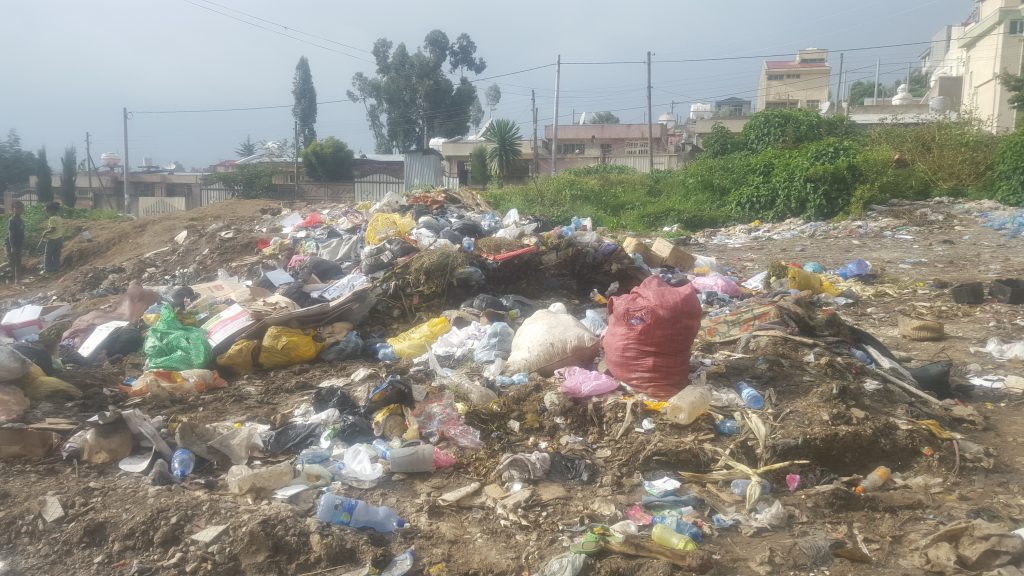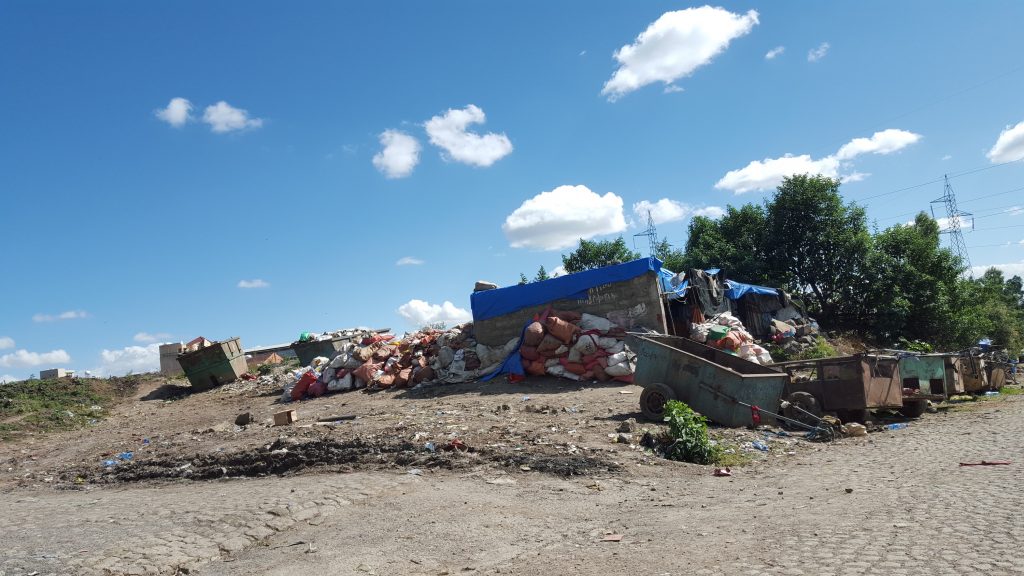現代ブータンにおける都市農村関係――ブータン東部バルツァム郡在住者・出身者の繋がりに着目して――
対象とする問題の概要 第二次世界大戦以降、第三世界諸国における農村都市移動と、それに伴う都市の人口増加が顕著にみられる。また、都市において、同じ出身地域で構成される同郷コミュニティの形成が数多く報告されている。特にアジアやアフリカ諸国では…

The informal solid waste collection service in Addis Ababa has a long history; however, it started operating in a more organized manner before the regional government’s decision to register waste collection as government-supported micro and small-scale enterprises (MSSEs) in 2005 ahead of the national election. This sector contributes significantly to bridge various service gaps in the municipal solid waste management (MSWM) of the city (Bjerkli 2013:1277-1279). The present study was conducted in Wereda (unit of sub-city or a third administrative stratum of the city) 09, Bole sub-city, Addis Ababa, Ethiopia.
The purpose of this fieldwork was to map wholesalers of recyclable waste in the study area and identify their roles in waste recycling.

At the research site, the overall sanitation situation of the area has deteriorated compared to my observation in 2017 and early 2018. The house-to-house municipal solid waste collection service in this area is rendered by share enterprise comprising of 67 sanitation workers. This is done in contractual agreement with the Wereda administration. Waste transportation to transfer stations for secondary collection is supported by five donkeys and a collection truck owned by the sanitation workers. However, in many transfer stations in the area, it was observed that waste accumulated over several days, causing an unpleasant smell. These transfer sites are also used as segregation points since, most of the time, mixed waste is collected from households and then segregated at transfer stations.
The segregated solid waste is sold to wholesalers in the area, who are often called Diza Bet. These wholesalers can be registered legally, or they may simply work informally. However, their activities in both cases are similar. These local shops are widely known by itinerant junk buyers by the local name Koraliyos, sanitation workers. The Diza Bet play an important role by purchasing different kinds of recyclable items based on market demand. There are six shops of this type in different parts of Wereda 09. The large and well-known ones have better connections with factories and shops in Merkato (the largest open market in the city and Africa)and tend to offer good prices. Accordingly, the small Diza Bet take their items and sell them to the nearby Diza Bet. In conclusion, the development of this recyclable material chain could potentially bridge the gap in motivating the segregation of waste at the source and financially support the provision of services.
Based on the findings of this study, the author would like to scale up similar research in other parts of the city and identify the existing situation for possible generalization of the city-level trend.
【1】Bjerkli, Camilla, 2013. Governance on the ground: A study of solid waste management in Addis Ababa, Ethiopia. International journal of urban and regional research 37(4):1272-87.
Copyright © 附属次世代型アジア・アフリカ教育研究センター All Rights Reserved.